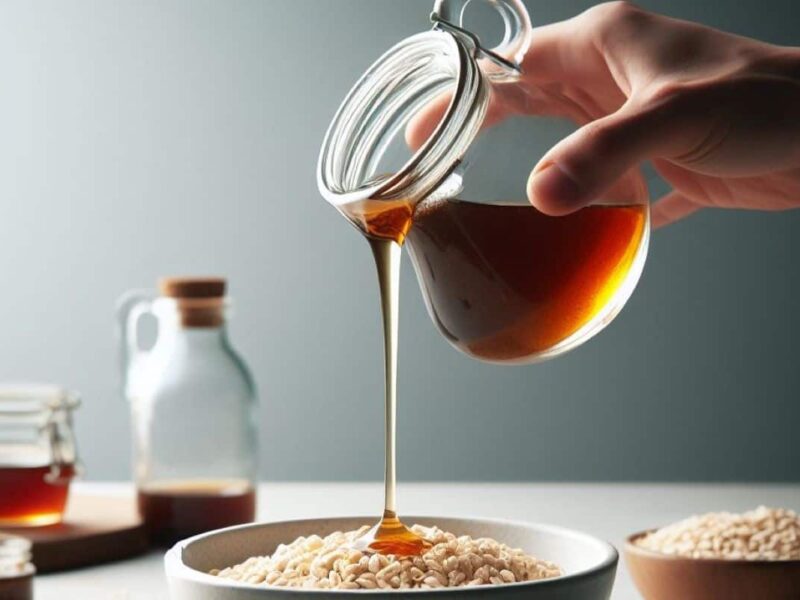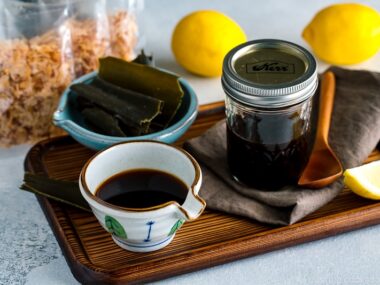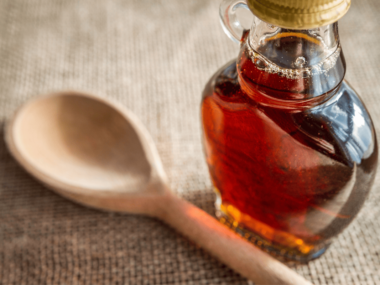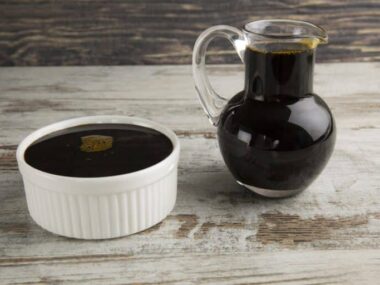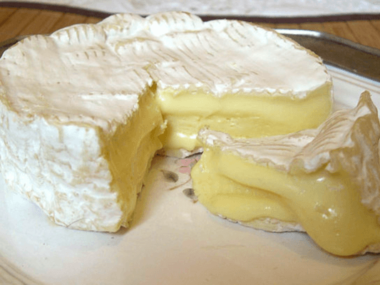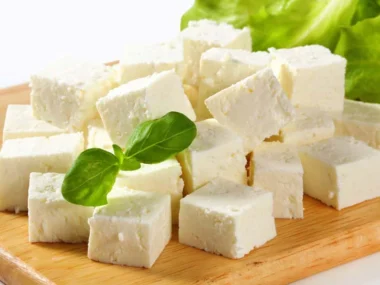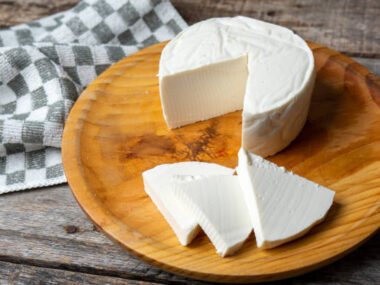Barley malt syrup is a common ingredient in bagels because it adds a unique sweetness and helps with browning. However, not everyone has barley malt syrup at home, or some people may need to avoid it due to allergies or dietary choices. If you’re in this situation, don’t worry. There are several good substitutes that can still give your bagels a delicious taste and texture. In this post, we’ll look at ten alternatives to barley malt syrup that can work well in your bagel recipes.
Each of these substitutes has its own flavor and properties. By understanding these alternatives, you can find one that best suits your taste and needs.
Whether you prefer something sweet like honey or something richer like molasses, you can still make tasty bagels without barley malt syrup. Let’s look into these options and see how they can be used in your bagel-making process.
10 Best Substitute for Barley Malt Syrup In Bagels
1. Honey

Honey is a natural sweetener made by bees from flower nectar. It is known for its smooth, sweet flavor and can be used to substitute for barley malt syrup in bagels. Honey not only adds sweetness but also helps with browning, giving your bagels a nice golden color.
The flavor of honey can vary depending on the flowers the bees visited, so it might have hints of different tastes, like floral or fruity notes. Using honey in your bagels will give them a rich and pleasant sweetness, which can enhance their overall taste.
2. Maple Syrup
:max_bytes(150000):strip_icc()/152002_homemademaplesyrup_ddmfs_3x4_2639-3d749bab68994949abef4882cecdeafd.jpg)
Maple syrup is made from the sap of sugar maple trees. After the sap is collected, it is boiled down to create a sweet, amber-colored syrup with a rich, slightly caramelized flavor. Maple syrup is less intense than molasses but provides a warm, comforting sweetness to bagels.
It adds a distinctive maple flavor that many people find appealing. In addition to sweetness, maple syrup helps with the texture of bagels, making them slightly crispier on the outside while keeping the inside soft.
3. Molasses
:max_bytes(150000):strip_icc()/gettyimages-913034028-2000-6a8d38521f8c42139f9eb97a3c03ee3f.jpg)
Molasses is a thick, dark syrup that is a byproduct of sugar extraction from sugar cane or sugar beets. It has a strong, robust flavor with a deep sweetness that can be quite distinctive. Molasses is much richer and more intense than other sweeteners
This means it can add a lot of depth to the flavor of your bagels. The dark color of molasses will also give your bagels a deeper, darker hue. It’s an excellent choice if you want a richer taste and a more pronounced sweetness.
Read also 11 Best Substitutes For Sugar Figgerits
4. Agave Nectar
:max_bytes(150000):strip_icc()/iStock-465505248-58b0a69d5f9b586046e9276a.jpg)
Agave nectar is derived from the sap of the agave plant, which is also used to make tequila. It has a mild, neutral sweetness that is less intense than honey or maple syrup. Agave nectar is known for its smooth consistency and is often used as a substitute for sugar in various recipes.
It blends well into dough without altering the flavor significantly, making it a good choice if you want to keep the taste of your bagels as close to traditional as possible while still avoiding barley malt syrup.
5. Corn Syrup
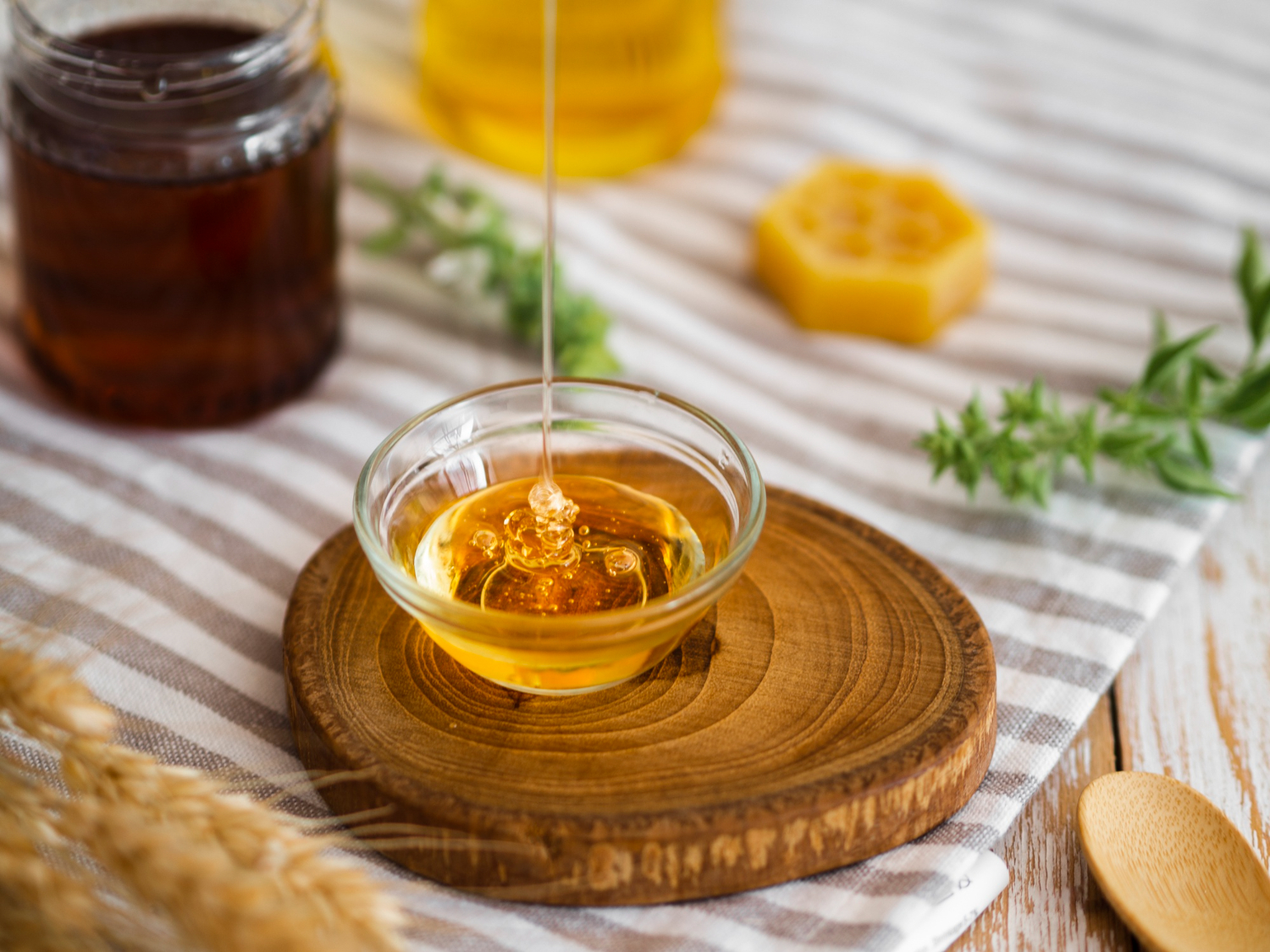
Corn syrup is a sweet, viscous liquid made from cornstarch. It has a mild sweetness and is often used in baking to improve texture and prevent crystallization. Corn syrup helps with the texture of bagels, making them softer and helping them to brown evenly.
Although it doesn’t add a lot of flavor, it is effective in achieving the right consistency and color for your bagels. If you’re looking for something that will keep your bagels soft and nicely colored without adding much extra flavor, corn syrup is a good option.
6. Brown Sugar
:max_bytes(150000):strip_icc()/230511_LightorDarkBrownSugar_ddmfs_4x3_2404-8bd53810c76d4ac1b2db0cd83e7fb88a.jpg)
Brown sugar is granulated sugar that has been mixed with molasses. This gives it a moist texture and a rich, caramel-like flavor. To use brown sugar as a substitute, you’ll need to dissolve it in water to create a syrup-like consistency that can mimic the texture of barley malt syrup.
This mixture will add a deep sweetness and a hint of caramel flavor to your bagels. The natural molasses in brown sugar also contributes to a slightly richer color and flavor.
7. Simple Syrup

Simple syrup is made by dissolving sugar in water until it forms a clear, sweet liquid. It’s a straightforward sweetener that doesn’t have a strong flavor of its own, making it a versatile choice for many recipes.
When used in bagels, simple syrup adds sweetness without significantly changing the overall flavor. However, it doesn’t help with browning as much as barley malt syrup or some of the other substitutes, so your bagels might not be as golden.
8. Rice Syrup

Rice syrup, also known as rice malt syrup, is made from fermented rice. It has a mild sweetness and a light, slightly nutty flavor. Rice syrup is less sweet than some other syrups but is effective in adding a gentle sweetness to your bagels.
It also helps with texture, making the dough a bit more pliable. If you want a subtle, light sweetness without overpowering the other flavors in your bagels, rice syrup is a good choice.
9. Coconut Nectar
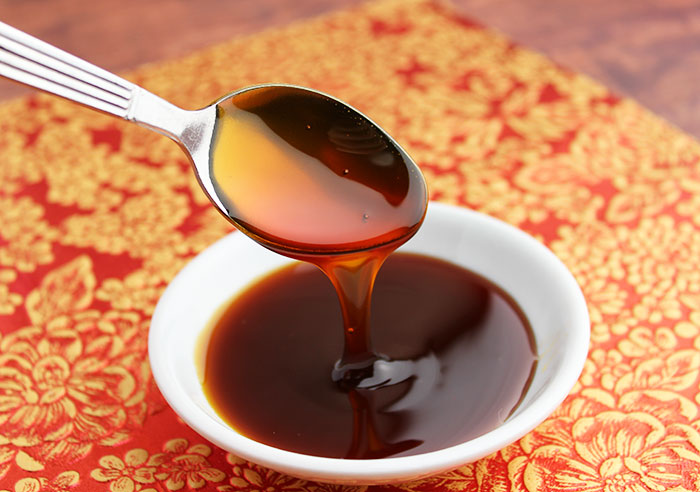
Coconut nectar is a sweet liquid harvested from the sap of coconut flowers. It has a unique flavor with a hint of coconut and a slightly caramel-like sweetness.
Coconut nectar is less sweet than some other syrups, but it adds a distinctive taste that can be a pleasant change from more traditional sweeteners. It also has a lighter color, so it won’t darken your bagels as much as molasses or brown sugar might.
10. Date Syrup
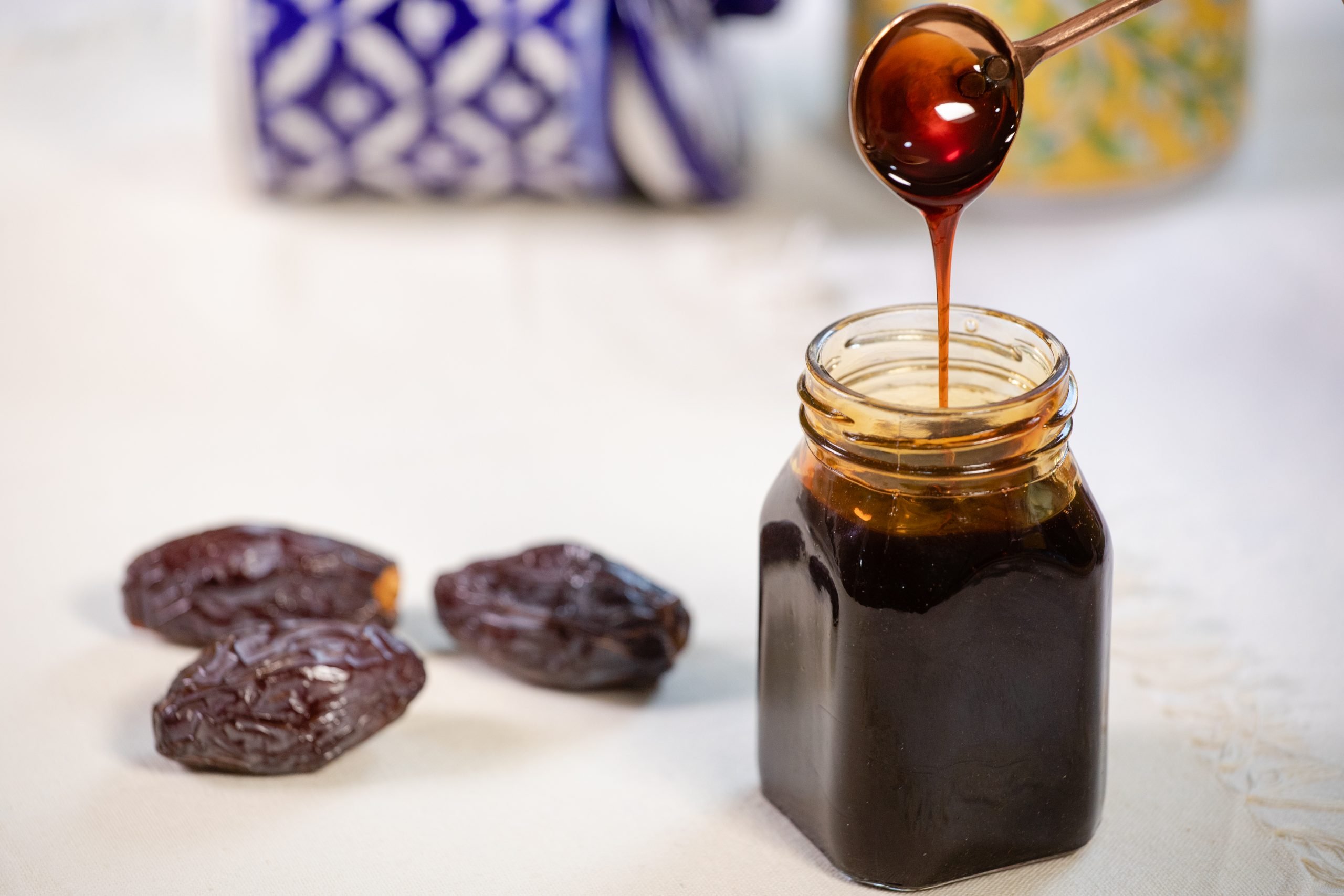
Date syrup is made from dates and has a rich, deep sweetness with a hint of fruitiness. It’s a thick, dark syrup that adds a lot of flavor to your bagels. Date syrup provides a caramel-like sweetness that can enhance the overall taste of your bagels.
The natural richness and thickness of date syrup also contribute to a nice texture, making it a great alternative if you want a more complex flavor profile.
Conclusion
These substitutes for barley malt syrup each offer different flavors and benefits, allowing you to still make delicious bagels even without barley malt syrup. Whether you prefer a subtle sweetness from agave nectar or a rich, deep flavor from date syrup, you can find an alternative that fits your taste and needs.
